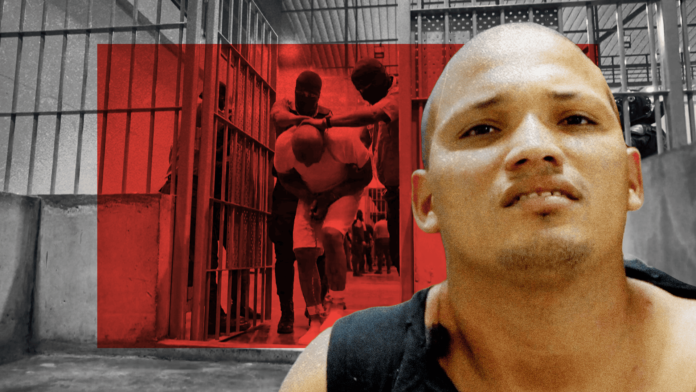“They make you kneel, slap you, hit you, kick you,” sometimes with sticks, he adds.
Arturo – a singer from Caracas – says after one beating there, he was unable to sit down because his ribs and kidneys hurt so much. “Twice I spat blood. My head was like a punch bag.”
He was taken there more than 10 times, he says, mostly as a punishment for singing.
Andry says on one occasion, guards sexually abused him. He believes this was because he is openly gay.
He says he didn’t dare report it to prison management because he “was afraid that something much worse would happen… that’s why we all decided to remain silent”.
After about a month, locked in their regular cells, the prisoners revolted, says Joén. He describes how some of them had been made to kneel on the floor and sprayed with pepper spray – one fainted, hitting his head.
“We weren’t going to let it happen again and we rose up,” he says, adding that they had thrown soap and water at their jailers.
“We had a white sheet. Some of the prisoners cut themselves and used their blood to write on it: ‘We are immigrants, we are not terrorists. Help. We want a lawyer,'” Joén says, describing how they had hung it through the bars of their cell like a flag. Wilken says the scars from where he deliberately cut himself are still sore.
The Venezuelans say they followed this with a hunger strike lasting about three or four days, calling for better conditions.
But nothing changed.
We put the allegations to the White House, and spokesperson Abigail Jackson responded: “The Trump Administration is grateful for our partnership with President Bukele to help remove the worst of the worst violent, criminal illegal aliens from American communities.”
She said any further questions should be directed to El Salvador and Cecot.
BBC News Mundo requested interviews with the prison’s director, Belarmino García, and El Salvador’s justice minister but did not receive a response. In the past, President Nayib Bukele has denied accusations of human rights violations at Cecot and other prisons.

